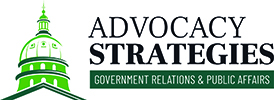This week in the Iowa Legislature
We SURVIVED the first funnel week! This week was incredibly busy, with several long days, and committee meetings running hours behind. It certainly lived up to its expectations! Despite a rocky start, both the House and Senate moved their own version of the AEA bill to meet the funnel deadline. A public hearing on Monday for House File 2389 regarding gender identity brought hundreds to the Capitol, and grabbed the media spotlight. Hundreds of bills were quickly pushed through the subcommittee and committee process, as lawmakers negotiated to keep their bills alive through the pending deadline. See below for an update on the high-profile bills prioritized for this first funnel. Next week, attention will largely turn to lengthy caucus sessions and floor debateEminent Do
AEA Reform Continues to Divide Lawmakers
This week House and Senate lawmakers introduced very different, amended versions of the Governor’s controversial AEA reform bill. While the Senate subcommittee approved the Governor’s original bill earlier this year, the House tabled the bill indefinitely.
On Wednesday, House Republicans introduced their own AEA bill and passed it through committee on Thursday afternoon. The bill would:
- Require schools to contract AEAs for special education services
- Funnel federal dollars directly to AEAs, but state funding will go to districts
- The school districts can then choose to contract other services like media and general education to AEAs, or select other providers
The Senate Education Committee amended their version of the Governor’s bill late into the evening on Wednesday to:
- Gradually shift AEA state funding to school districts
- Direct 90% of the special education dollars to school districts, while allowing AEAs to retain the remainder
- Allow districts to retain 60% of media and general service dollars, and 40% would go to AEAs
- Allow districts the option of contracting with AEAS or other providers for any service needed
These competing proposals are now eligible for consideration the rest of session, but we expect further debate and more changes to come before either of these bills make their way to the Governor’s desk.
Hot Topics Surviving the Funnel:
- Over-the-Counter Contraception: The Governor’s proposal would allow Iowans to access over-the-counter birth control through a pharmacist.
- Election Integrity Reform: Both chambers advanced companion bills that would allow federal candidates convicted of felonies on Iowa ballots, ban ballot drop boxes, and shorten absentee ballot voting. The debate on the House version of the bill was so heated the Democrat subcommittee members walked out of the meeting.
- School Safety Legislation: Under House Study Bill 675, school employees would be allowed to carry weapons on school grounds if issued a permit, offers districts the chance to apply for safety grants, and requires schools with over 8,000 students to employ a security officer.
- Gender Identity: Another proposal offered by Governor’s Reynolds. The bill would define male and female in Iowa law. A public hearing was requested by Democrats and hundreds of Iowans gathered at the Capitol on Monday evening to express their opposition to the bill.
- Cap on Insulin Costs: Senators advanced a bill that would cap insulin prices at $75 dollars or less for up to a 31-day supply.
- Eminent Domain Matters: Under HF 2522, someone whose property is subject to eminent domain can file an application before the Iowa Utilities Board and a petition to seek declaratory review from the District Court.
- Parental Rights for Minor Social Media Accounts: House File 2255 would require parental authorization before minors can create social media accounts and provide civil penalties if violated.
- State Auditor Bypass: Senate File 2311 would allow state-funded public entities to contract public accountants to conduct the annual audits instead of the state auditor’s office. The state auditor would not have the ability to review or access the agencies’ audits.
- Chapter 20 Union Recertifications: SSB 3158 would change the process for employers submitting lists for bargaining unit recertification elections and allow for automatic decertification to occur. The bill is opposed by organized labor, teachers, firefighters, police, among others.
- Return Orders on Immigrants: This legislation would make it an aggravated misdemeanor for an individual who has been deported to return to Iowa.
- Eliminating the Income Tax: GOP chairs of the Ways and Means committees proposed legislation to gradually eliminate the individual income tax in Iowa. The proposal is significantly more aggressive than the governor’s legislation to reduce the current tax level from 5.7% to 3.65% in 2024.
- Governor’s Behavioral Health Merger: The Governor’s proposal reorganizes the 13 mental health regions and 19 substance abuse regions into 7 districts for behavioral health while moving disability services to align with aging services.
- Governor’s Boards and Commissions Proposal: On Wednesday, the House and Senate advanced competing versions of legislation to reduce the number of Iowa state boards and commissions. While Senate Study Bill 3172 largely mirrors Governor Reynold’s proposal of consolidating or cutting 111 out of 256 existing boards and commissions, the House introduced their own slimmed down version, House Study Bill 710 which would merge or eliminate only 49 boards and commissions.
K-12 School Funding
Supplemental State Aid (SSA) has been slow to surface with so many education policy reforms on the table that would impact the final budget number. Legislators missed their self-imposed deadline (Feb. 8th) to set the SSA. In the meantime, school districts are required by law to submit their annual budget to the Dept. of Management by March 15th annually. Lawmakers are trying to find room in the budget for many priorities including raising teacher salaries, AEA reforms, a $10 million merit-based grant program, and general aid to help manage inflation. The Governor recommended a 2.5% increase in her budget and House Republicans proposed a 3% increase while Senate Republicans have only passed a shell bill with no specific number. The Senate has noted it will advance the bill once they have a clearer picture of the budget.
Looking Ahead
With the first legislative funnel deadline behind us, a new phase of the session begins. The pace will slow down as it will largely be consumed with caucus and floor debate as the focus shifts from subcommittee and committee work to passing bills between the chambers. Both the House and Senate have scheduled meetings for the Ways & Means and Appropriations Committees, but the general policy committees will not meet this coming week as they wait for the other chamber to send bills their way. Both chambers are limited by rule this week to only take up bills originating in their chamber. The House can only pass House Files and the Senate can only take up Senate Files to keep their work focused and working toward adjournment.
Each chamber has hundreds of bills they could consider, many of which will require passage through a subcommittee and committee in the opposite chamber to make the second funnel—which falls on Friday, March 15th. Leadership must now sort through all the bills and determine the policy priorities they want to move forward or are realistic to pass this session. To stay up to date on scheduled committees and subcommittees and their virtual access information, follow this link.
Bills of Interest
Advocacy Strategies continues to ensure that every bill pertaining to you will be tracked. Along with this email report each week you will see a bill tracker chart developed by our new bill tracking system, AdvoKit. Please review this and confirm your declared bills are correct. Please let us know if there are any changes that need to be made.
Our ability to best represent you is based on quick and open communication. Once the legislative session progresses further, our requests for bill declarations will increase substantially. We ask you to let us know your organization’s position on each bill within 24 hours of your receiving daily bills in AdvoKit so we can respond accordingly.

